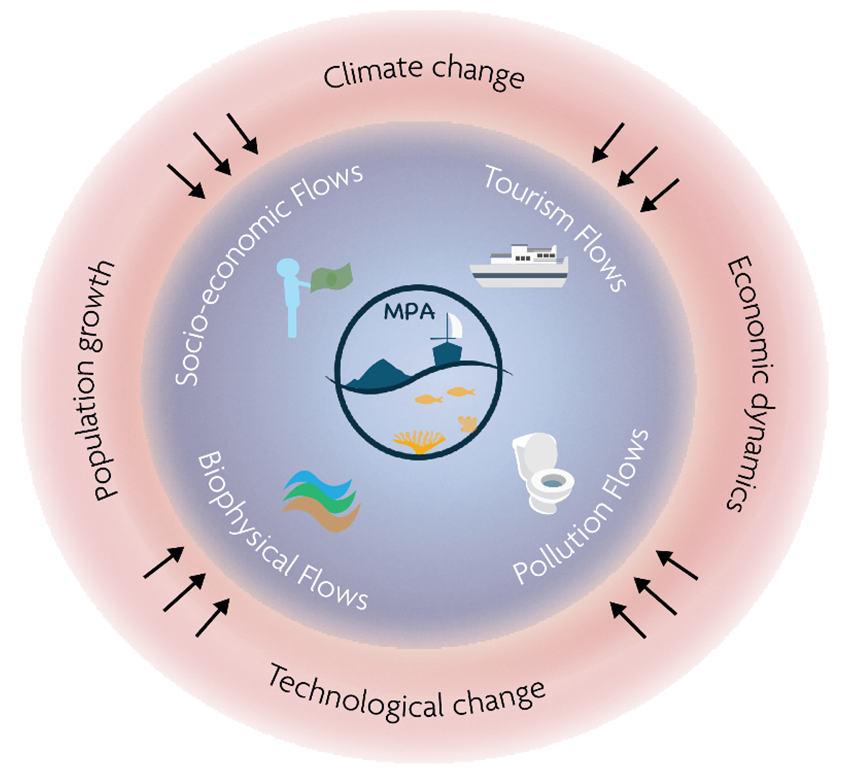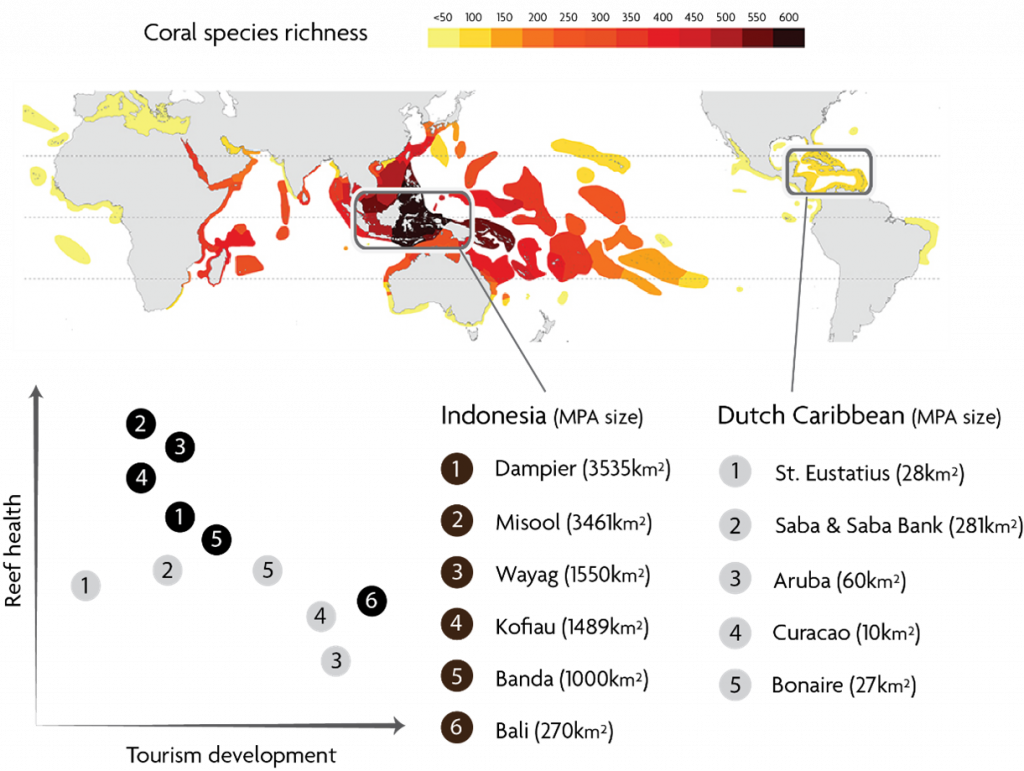What?
The key question we address with the INREEF program is how tourism, in combination with other drivers such as climate change, fishing and pollution, will affect the ecological integrity, local livelihoods and social cohesion of marine protected areas (MPAs).
Why?
Coral reefs are under severe threat worldwide. Some of the most biodiverse reefs in Indonesia and the Dutch Caribbean are currently a focal point for marine conservation by governments and organizations. At the same time these reefs are actively promoted as a key attraction for marine tourism.

How?
In order to address the stated issues, we use a social-ecological-systems approach to sustaining the resilience of MPAs in the face of growing tourism and climate change. This approach explicitly links the resilience of ecosystems to governance structures, economies and society. Central to this endeavor is an improved understanding of the state of the social- ecological system of the MPAs in different levels of tourism development.

The program is divided into six workpackages and in each workpackage we have defined different PhD projects. These researches are mainly focused on fulfilling the following objectives:
- Build human and institutional capacity at universities,
institutes and NGOs in Indonesia and the Dutch Caribbean - Develop an interdisciplinary online education program on MPAs and social-ecological-systems
- Develop, assess, and implement scalable solutions to manage drivers and stressors in small island ecosystems.
- Co-develop and assess a dynamic Resilience Dashboard to monitor and track resilience indicators that (i) can be adapted as needs, stressors and available data evolve and (ii) is scalable and can be used for other social-ecological-systems.
Where?
Studying replicate MPAs under different degrees of tourism development in Indonesia and the Dutch Caribbean allows the formulation of general conclusions, while in depth studies allow specification of drivers of change, threshold values and interactions. Each of the MPAs involved provide a specific and contrasting set of challenges within the Social-Ecological-Systems framework, providing a rich environment for learning and experimentation.

Adapted from: Spalding, M., Ravilious, C., & Green, E. P. 1. (2001). World atlas of coral reefs. Berkeley, University of California Press.
